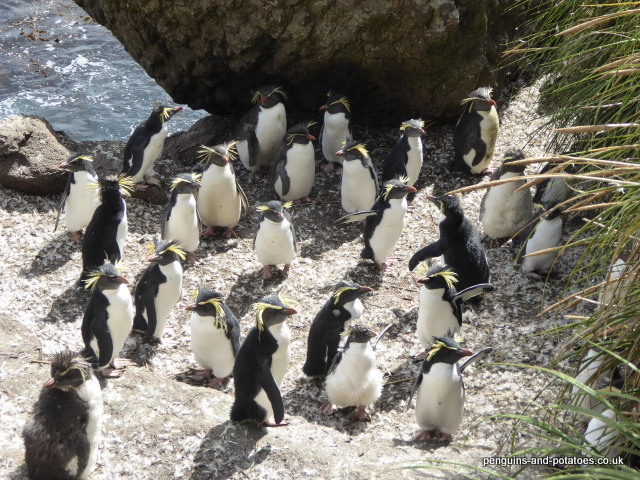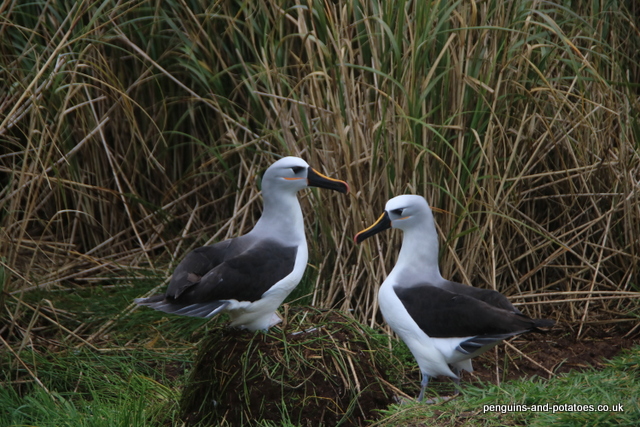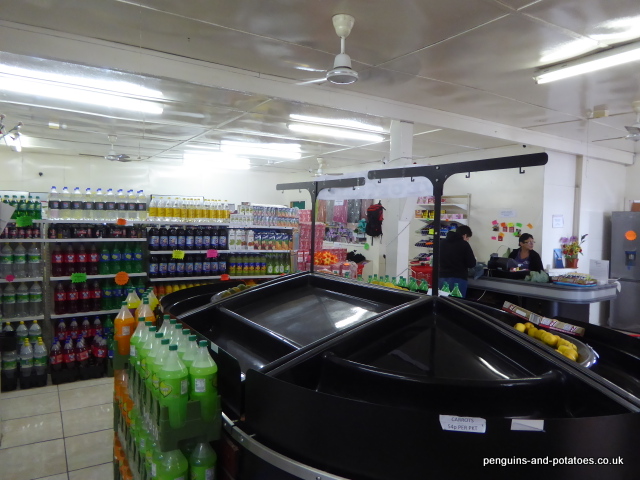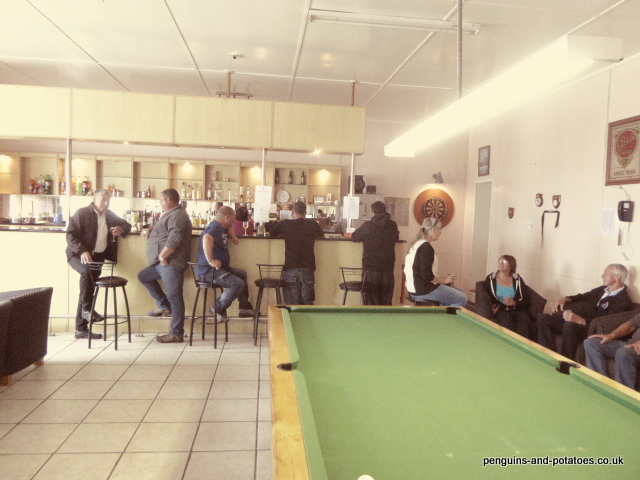It is nearly 19 weeks since Bee and I arrived back in Scotland after our time – nearly 2 ½ years – on the island of Tristan da Cunha. Which means that it is 22 weeks since we left the island itself. How did that happen? Where did all that time go?
Bigger questions are all to do with the impressions that we have on re-joining the developed world, which in turn is a reflection of how we had become accustomed to life on the island, and the extent to which our outlooks have changed. Everyone we meet back here poses the same line of questions, and it is natural that we have become reflective as a result of our experiences.
Perhaps the greatest difference we have been aware of, from the time that we set foot off the boat in Cape Town to face an on-going exposure to the modern world, is to do with the rampant commercialisation that we are all faced with. On the island choice was limited and basics only were available, which is exactly as you would expect when the shop supplies to a population of just 246 people. In Cape Town we found shops and restaurants with an endless range of goods available. We were not used to this! Not only are the shops full of stuff that we really do not need, but also there are extraordinary numbers of on-line traders looking for payment today for delivery tomorrow. This observation is, literally, brought home now that we are back in Scotland. We are half way through building our house, and the range of goods available is simply overwhelming. On the island, there might be a possibility of a new lavatory being available from Public Works if your existing one should crack, whereas here there are literally thousands of different shapes, styles and prices. The same goes for kitchens, floor coverings, light fittings. The world has become complicated, and perhaps in the last 2½ years Bee and I have become simplified.
One of the things we have both noticed is variety of bird life and the amount of bird song that we have in Scotland. Tristan effectively has no song birds. Certainly the island has interesting bird life, but the birds are generally silent. The Northern Rockhopper Penguins come ashore to ‘rookeries’ (as if they were rooks!) but the only sound they make is a discordant screech if they are handled, as for example when the Conservation Department carries out a ringing operation in the rookeries. The Yellow Nosed Albatross is silent, apart from sometimes a warning bill-clicking if you approach within a few inches of them when they are on their nest. So naturally we are strongly aware of the birds now that we are back home. The leader of the orchestra is the blackbird, which starts up the dawn chorus at around 4.00 in the morning. We have friendly robins cheering up every corner of the garden with their song, a range of finches in the trees announcing their territory to all comers. We have several species of duck flying a circuit on their way to land on the river, and overhead a skein of geese will be chattering among themselves. Also overhead, swallows and swifts screech as they hunt insects in the evening, and oystercatchers add another dimension to the aerial sounds. We even have a cock pheasant in the garden, strutting his stuff and calling to the world while his mate looks after her clutch of eggs somewhere in the undergrowth, ready to protect the baby chicks from neighbourhood cats. We have seductive wood pigeon calls and discordant jackdaw calls. Above all are the owls, which add night-time soul to the woodlands with their haunting calls one to another. It is all so different from Tristan, and no doubt we appreciate the diversity of bird life more than before we went to the sI suppose that diversity is one of the main differences between Tristan and Scotland. Not diversity in the narrow social sense, but true diversity covering all subjects. Compared with Tristan, we have here a diversity of farming systems, of trees, of landscapes. There is diversity of people, and the things they get up to at work and in their leisure time. There is even diversity of places to go and eat or pubs in which to go and socialise! This is all to be expected, and after the privations of Tristan da Cunha it is only to be expected that we feel the difference. Indeed, there is no doubt that our time on the island has sharpened our appreciation of our own country.


As also can be expected, one of the greatest differences that we see – and appreciate – is in the everyday shopping. Where we live in Scotland we have a mini-supermarket just a 5 minute stroll from the door, which is open from 6 in the morning to 11 at night, seven days a week. What service! The shop on the island opened at 8 and closed at 2.30, Monday to Friday. Even then, as can be imagined, the range of goods was really limited. In particular, fruit and vegetables were often not in stock, or were in poor condition. This was all part of a chicken-and-egg situation in which poor availability of fresh foods (fruit and vegetables) resulted in a low interest in routinely using such foods. This is particularly sad when you consider that the island could become self-sufficient in fruit and vegetables, if only there was sufficient interest in each household growing their own.

Island life was delightfully simple – it had to be. I now have to adapt to complications and regulations that would have been unthinkable on Tristan da Cunha. For example, we are in the middle of building our house, and it is just astonishing how many and how complex the regulations are that I have to comply with. For example, the Building Inspector told me that I had to lower all the light switches by 20cms, so that they are easy to reach if one is sitting in a wheelchair. And the water inspector told me that an outside standpipe had to be equipped with a second double-check valve, in addition to the one already fitted. None of this on Tristan – there you go through the simplest of procedures to get permission to build, and then you get on with it with no regulations to comply with of any sort. Possibly the ideal system would be somewhere between these two extremes!
One question is – What Next? Getting the house finished is top priority. After that – watch this space!! We may well go off and do more exciting things, probably involving islands, boats and land use. It is perfectly possible that I will try to weave stories of our next activities into this site. In any case, I still have material all prepared for a number of articles on Tristan, and I hope to get these written and published before long.

